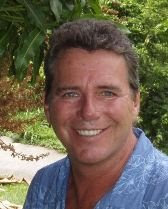
How and Why I wrote Alexandra’s DragonFire
The telling of this story of Alexandra’s DragonFire began when my daughter, Ashley Alexandra, was about one year old. Every night, she would receive a bedtime story read by either her mother or myself. Many a night, instead of reading her a bedtime story, I would make one up for her. Most times, these stories involved a little girl, who, wandering alone in the woods, finds a dragon, and together they share many adventures.
Now, although my little girl has since become a young woman, this story is still for her. Now, however, it is no longer a bedtime story. It is a wake up call.
When she was younger, and I was telling her of dragons and such, she would often interject with comments like, "Don't be silly, Dad. That would not happen like that." She would often question the adventures I made up; but never once, did she question the existence of dragons.
During the writing of this book, Ashley continuously read and commented on the story. She made suggestions about the characters' behavior. She insisted that I discard some ideas and add others. She changed Alexandra's dialogue. She still, never once, questioned the validity of the tale of a girl and her dragon.
This story is not just for her, (it is hers too, in the telling, as much as it is mine); it is also for all those whose psyche responds to myth and magic.
Myth and magic, as Joseph Campbell so eloquently pointed out, are defining features of the human psyche. Any individual's search for meaning and purpose, usually ignited in the teenage years, finds apt metaphor in the mythological, inspiration in the magical.
Mythic heroes like Hercules exemplify the struggles and virtues of a developing human being. He is half-god, half-human; half divine and half mundane; half saint and half sinner—such as are we all. Hercules and the other heroic characters of Greek mythology defined the cultural mythos of the time.
Alexandra's namesake, Alexander the Great was inspired—no, more than inspired—he was compelled to live as he did by his cultural mythos. The Oracle at Dodona had told his mother, Olympia, that he was a demi-god destined, like his ancestor, Hercules, to become a creature of mythology. Alexander lived his life accordingly. The result was the great city of Alexandria and its' glorious library, the genesis of the finest aspects of our current culture.
We are all, in some way or another, like the historical Alexander and the imaginary Alexandra, also compelled to live our lives according to our own cultural mythos. But what is our mythos?
Today, in this age of scientific rationalism, humanity is devoid of a defining mythos, vainly attempting to find metaphor in the pages of National Enquirer, People magazine or their broadcast counterparts, hopelessly struggling to find inspiration in materialism. We live our lives accordingly.
The heroes of today's youth are morally bankrupt sports figures, movie or pop stars with inflated egos; the tragic-comedies of their commonly amoral and irrelevant lives followed as avidly as once were the tales of Hercules' moral and relevant, divinely appointed tasks.
And what of our Oracles? Mythic, larger than life, dragons? NO! Instead we have double-speak politicians and drab-suited economists, interpreted, not by the poetic visions of the maidens of Delphi, but by the scripted sound bytes of television anchor persons.
What results from this lack of an appropriate defining mythos for our times? Inner city youths kill without conscience for a pair of their latest basketball hero's branded running shoes. Intelligent and educated teenage girls struggle to define their identity by dressing and acting like the latest and greatest, neurotic pop divas. Children use assault weapons to murder their schoolmates, emulating their movie house action heroes.
What results from our mediocre self-appointed visionaries, our oracles? Cities full of people turned into addicts, mind-numbed television junkies, who vote, as told to, for the war on drugs, or any war against the flavor or villain of the week, whilst imbibing their martinis, shaken, not stirred. There is always some dragon that needs slaying. A trillion dollars per year is spent on weapons of destruction. Mere millions are allocated for the health and education of those who need it most. Tens of thousands of children die, every single day of every single year, from starvation and disease whilst food rots in granaries and medicines sit on shelves waiting for those who can afford to pay the price. Our rainforests, coral reefs, mountainsides and the waters of rivers, lakes and oceans are despoiled, ravaged and plundered to assuage our fast food, short-term thinking.
There are many, unlike Ashley, who may question the validity, in today's 'rational' world, of this story of a Dragon/Oracle passing on the secrets of the meaning and purpose of life. This mythological tale is dedicated to them. This is not a bedtime story. It is a wake up call.
It is plain to see that we all need a little magic and a different mythos. We also need a new type of hero, one who does not need to go out and slay dragons, real or imagined.
The mythic hero of this tale is not Pythos, the dragon from the past. It is the heroine, Alexandra, to whom the future belongs, and with whom we can all empathize and identify as she takes on the Herculean task of creating the future. A future filled with ideals and visions that inspire each and every one of us to look to the god-half of our natures, to aspire to be worthy of becoming mythological.
Ashley is the muse; so are all our children. This is their story. I am merely the one who did the typing.





No comments:
Post a Comment